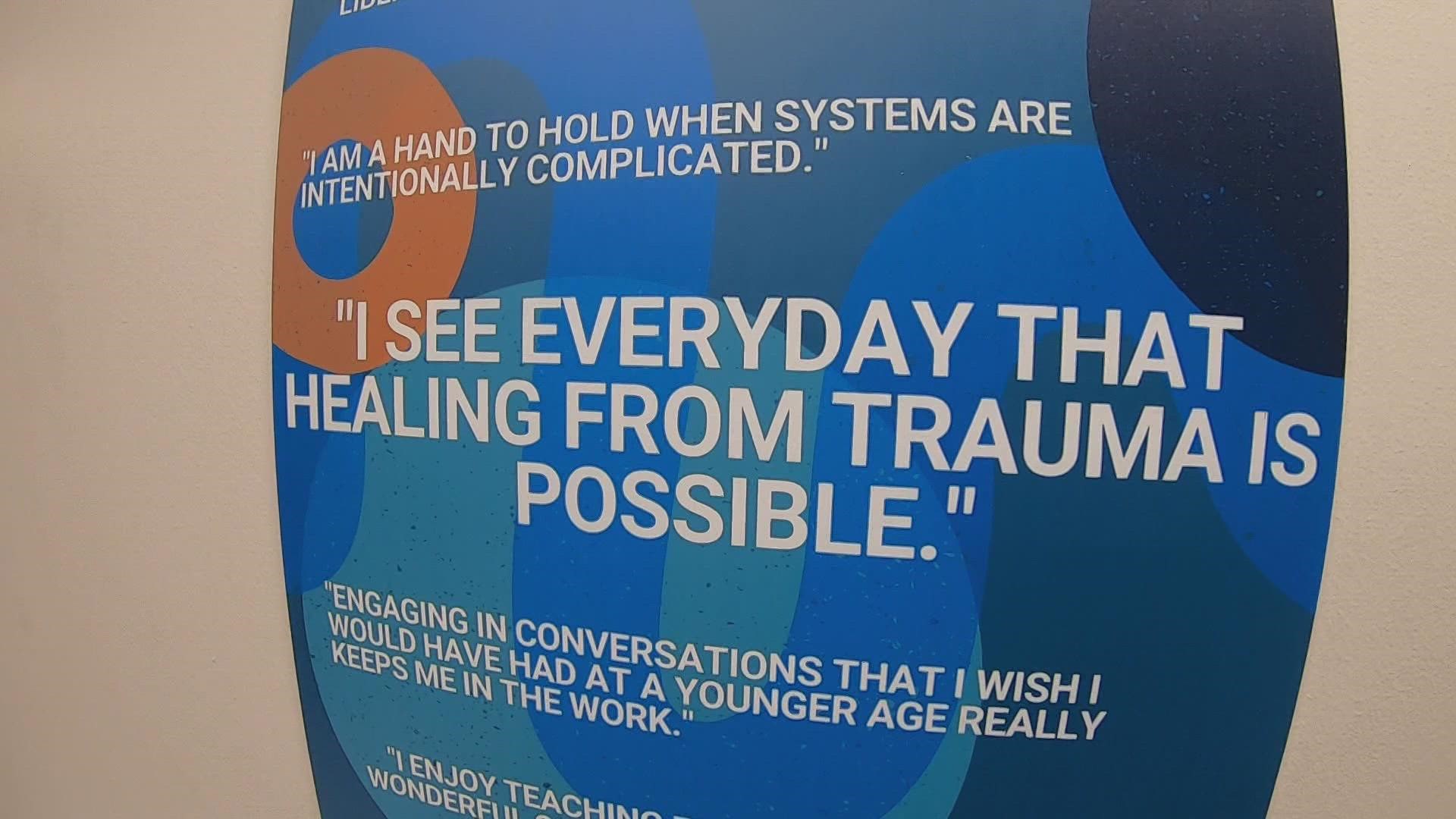DENVER, Colorado — Victim services organizations are already making difficult decisions and cuts to services, due to reduced funding from the federal government.
The Blue Bench, which serves sexual assault victims, will see a 35% reduction in federal funding through the Victims of Crime Act (VOCA) funding. The decrease will mean The Blue Bench will start turning clients away if they have insurance while prioritizing those without insurance, as they may not have other options for help.
"It’s a significant chunk of our funding. VOCA is our biggest grant that we get and that we have reliably gotten year after year. It makes a decent proportioned chunk of our budget," said Ana Martinez, Co-Director of Client Services at The Blue Bench.
The organization is also reducing multiple positions. On the therapy team alone, the organization will drop from six therapists to just one and will eliminate one co-director of client services.
"We are seeing the strain already on how that is landing on survivors who are calling and asking for help," Martinez said.
The organization will redirect existing clients as well. The Blue Bench has tried to limit the length of its waitlist by allowing clients to be seen for therapy for six months, off for six months, and then resume services. For those who plan to seek their resources again after the initial six months, many will be turned away or the provider who worked with them may not be in the role in the future.
"I’ve gotten the feedback already that it is re-traumatizing because they’re going to have to go to a new person to share their story all over again," Martinez said. "Someone who already had a connection, already felt safe, that already built a community feeling they could come to The Blue Bench."
The organization would typically get the grant for a two-year time period. This year, the state only awarded it for the next 12 months, saying they're unsure what the financial situation would look like 12 months from now and what kind of grant they could award for the more than 200 organizations they distribute money to.
"In 2018, Colorado as a state was receiving about $56 million a year out of our VOCA fund from the federal government, and this current award that we just received is $13 million, and so that’s where everyone is talking about that dramatic decrease in the funding that we are receiving," said Kelly Kissell, Manager for the Office of Victim Programs at the Division of Criminal Justice.
Kissell's office is responsible for distributing the funds. Because the fund is financed by fines and penalties from convictions in federal cases, Kissell said the amount fluctuates based on prosecutions. She also said there has been no large settlement or fund that has reinvigorated the fund either.
"The ultimate impact is to all of the victims they are trying to serve," Kissell said. "There is going to be less help and less resources to do that. One of our grants helps a lot with victims trying to relocate out of a domestic violence situation for example, and they still have that money, but they have less of that money to do it."
Kissell's office said the passing of Proposition KK will alleviate some pain. The measure, passed by voters in the presidential election, will allow the state to collect an excise tax on gun and ammunition manufacturers to fund mental health resources and victim services. The state will not start collecting that money until April though, so it could be another year or two until it translates into funds for organizations.
The Division of Criminal Justice has also partnered with state coalitions, the governor and the legislature to pursue other avenues of funding.

